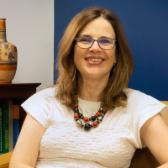 UF Center for Latin American Studies
UF Center for Latin American Studies
Day: Wednesdays
Times: 3:00 pm - 6:00 pm
Location: Grinter 376
NO PREREQUISITES OR INSTRUCTOR APPROVAL NEEDED FOR REGISTRATION
How do individuals, groups and whole societies remember traumatic events? Is recovering a troubled past important to build a peaceful coexistence, or is it better to forget and move on? Who owns “memory”? The nation, communities, families, individuals? How is memory deployed in the present? What are memory’s uses, if any? How do we remember? Creating narratives? Evoking images and sensations? Focusing on objects? How is memory different in content and form from History? And, is memory an effective tool to avoid history repeating itself?
In this seminar we will learn about theories and case studies that address memory and memorialization as we work on our own personal memory project and build our research skills. We will discuss family narratives, memory based social movements, legislation on memory and reparations, and the politics of memorialization and memory museums. We will also consider the difficulties of finding information on traumatic events, marginalized points of view, and daily life under authoritarian regimes. In addition, we will critically assess family and community oral sources as well as public and private archives. The seminar focuses on cases from the southern cone of Latin America, Peru, Colombia, Mexico, Guatemala, Spain and more.
 Dr. Carmen Martínez Novo
Dr. Carmen Martínez Novo
Center for Latin American Studies
Department of Anthropology
Grinter 382
Email: m.martineznovo@ufl.edu
Tel: 352-273-4716
Research Interests
Race and ethnicity, political anthropology, indigenous politics and rights, political ecology, anthropology of the state and elites, “study up” and collaborative methodologies
Geographic Expertise
Ecuador, Andes, Amazon, Mexico